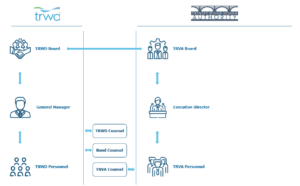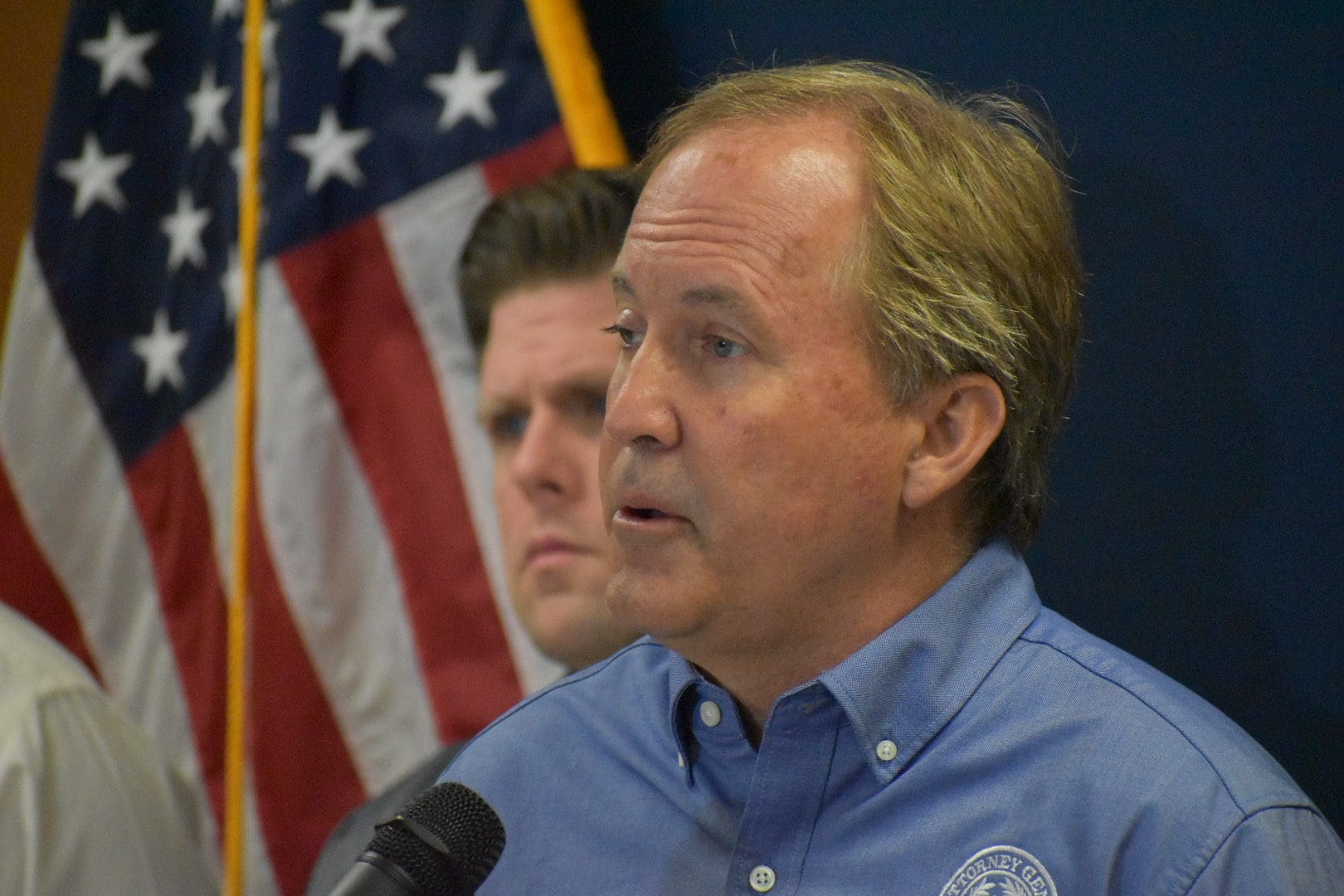Sources claim that roughly $600 million in federal funding will not be restored to a $1.168 billion redevelopment project in Fort Worth until the two bureaucrats responsible for its mismanagement are fired.
Sources in Tarrant County have informed Texas Scorecard that the Trump administration allegedly wants J.D. Granger, son of U.S. Rep. Kay Granger (R–TX) and executive director of the Trinity River Vision Authority; and Jim Oliver, general manager of the Tarrant Regional Water District, removed from the Panther Island project.
Some critics in North Texas are now calling the project “Granger’s floating island.”
Panther Island, conceived in 2003, is a massive government plan to reroute the Trinity River via a 1.5-mile bypass—and redevelop prime real estate near downtown Fort Worth—all under the guise of flood control. The TRVA was the entity created in 2006 to oversee coordination of the bypass channel, recreational amenities, and land redevelopment. Granger was hired to run the TRVA, despite having no education or work experience in public works or real estate development.
After years of cost overruns and delays, increasing the price tag from $435 million in 2006 to more than $1.168 billion in 2018, the Trump administration froze federal funding to the project last year, triggering a third-party programmatic review.
Among other glaring problems, the review found that Granger colluded with Oliver to keep TRVA board members in the dark. In direct conflict with the review’s restructuring recommendations, Granger confirmed to Texas Scorecard that he will keep his current job and continue to report directly to Oliver.
“Right now, I’ve been under both Jim [Oliver] and TRVA,” Granger said. “I’m still going to be under Jim, no matter what.”
The review also recommended that a wall of separation be created between the TRVA executive director (Granger) and the TRWD general manager (Oliver) and that the TRVA would only oversee Panther Island’s flood control aspects.

Oliver also made it clear, however, that nothing will effectively change. “The [TRVA], as it exists today, will be absorbed into TRWD,” Oliver said in an email. “J.D. will remain as executive director or its equivalent and will have virtually the same responsibilities as he has today.” Other mainstream news outlets released conflicting and misleading reports, which wrongly suggested Granger was either removed or reassigned.
Granger, Oliver, and G.K. Maenius—who is a TRVA board member and Tarrant County Administrator—were asked about the claim that the Trump administration wants Oliver and Granger removed.
“Actually, I don’t [know] that to be a correct statement,” Granger replied. “I’m not going to comment on that.”
“Well, I don’t know who told you that, but that’s BS,” Oliver said.
“That is not a statement I’ve ever heard from the current administration,” Maenius replied. “I think that those issues were created by different groups outside of the administration, and this is a local management issue, and it’s not a funding issue.”
With the support of Oliver, Granger was hired in 2006 to head the newly created TRVA, even though he lacked any related education or previous work experience, let alone for a project of Panther Island’s size and scope.
In 2019, after years of cost overruns and delays, the programmatic review found the project has so far cost taxpayers more than $383 million—with zero aspects of construction completed— and cost estimates have exploded from $435 million in 2006 to more than $1.168 billion in 2018. The project’s infamous eyesores are three unfinished bridges that stand over dry land, as the bypass canal has not yet been dug.
On top of the runaway price tag, the project’s completion date has been delayed until 2028, dependent on whether the project receives federal taxpayer funds of roughly $600 million. Voters in 2018 approved $250 million in new “flood-control” bonds for Oliver’s TRWD, although officials admitted the new debt would be used to keep Granger’s cash-strapped boondoggle afloat.
Oliver’s TRWD is the same taxing entity that originally loaned hundreds of millions to Granger’s project. The water district has also reportedly paid for Granger’s lavish compensation package all along, rather than the TRVA, although that has yet to be confirmed.
The review also found administrative bloat in TRVA’s annual budget, including more than $220,000 in public relations propaganda for Fiscal Year 2019. Over the years, Tarrant County residents have been flooded with promotional campaigns to wash over Granger’s failures. The TRVA’s bloated budget suggests those efforts will continue to help mitigate growing public skepticism.
Last week, Texas Scorecard asked Granger what assurances taxpayers have that costs will not continue to increase and that their new 2028 deadline will be met.
“Everyone’s doing their best to do that,” he responded.
With hundreds of millions already spent, and little to show for it, Granger’s assurances likely ring hollow for taxpayers.
Concerned Texans may contact the Fort Worth City Council and the Tarrant County Commissioners Court, both of which contribute local taxpayer funds to the project. Congresswoman Granger also faces a challenge in the Republican primary from former Colleyville City Councilman Chris Putnam.





